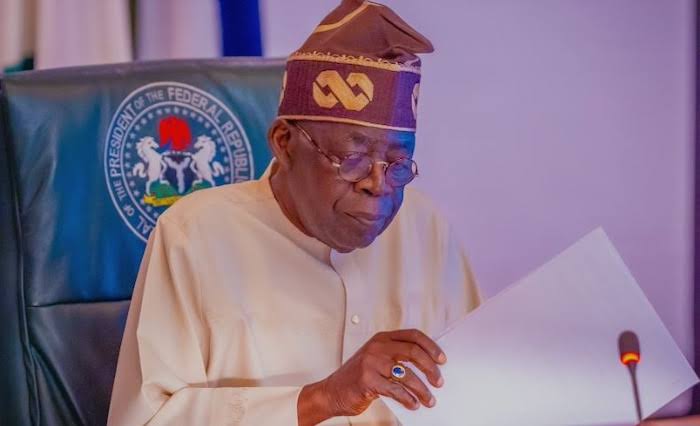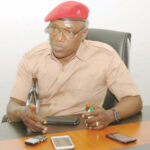The phrase “much ado about nothing” is used to describe a situation in which there has been a lot of hullaballoo about something that isn’t really important. Taken literally, it implies that a lot of time and effort (much ado) has been put into something insignificant (nothing).
Regarding President Tinubu’s recent cabinet reshuffle, the main question to be answered is whether or not it will bring about significant improvements in people’s lives, or it’s simply “much ado about nothing”?
In his reaction to the cabinet reshuffle, the leader of INRI Evangelical Spiritual Church, Primate Ayodele, claimed that it was irrelevant because even as Nigerians find it more difficult to survive every day, the ministers, who inflict unnecessary pains on citizens, are still in the cabinet, while the newly appointed ones cannot add any reasonable value to the administration.
Solomon Dalung, a former Minister of Youth and Sports Development, voiced his strong disapproval of the cabinet reshuffle. He concurs with the widely held belief that in light of the nation’s pressing problems far more ministers should have been replaced.
- Oil and gas made Nigeria to neglect tourism – NBA-SBL Chair
- Deposition: Again, court rules in favour of former Emir of Gwandu
While specifically criticising the key ministers overseeing power, defence, finance, works, Federal Capital Territory and petroleum, Dalung said there is no rationale behind retaining certain ministers considering their ineffectiveness.
In reply, the President’s Special Adviser on Information and Strategy, Bayo Onanuga, claimed that the decision to remove the affected ministers was based on public opinion and data relating to performance.
Public opinion had little to do with anything. Whatever data the Special Adviser may have been referring to, Dalung’s criticism of key ministers is far more in line with public opinion than what took place. Indeed it beggars belief that even as five ministers were removed, the Minister of State for Defence was retained despite being accused of supporting banditry.
The truth is that many ministers have become unpopular for operating in the shadows, speaking the language of force, and ruling by fiat. Citizens find themselves powerless against a government living in a state of denial shielding itself from the harsh reality of the dangers posed by their modus operandi.
Prince Adewole Adebayo, a presidential candidate for the Social Democratic Party in 2023, questioned the effectiveness of the “renewed hope” agenda. He asked; “What kind of renewed hope agenda begins with the removal of roofs over people’s heads, the removal of food from their mouths, and the removal of support for industries and normal living”? The level of public frustration he referred to was aptly captured in a front-page article by the Guardian newspaper which suggested that disillusionment with the political class was leading some Nigerians to consider military intervention.
The Presidency’s reaction of criticising the article as deliberately provocative and an assault on democracy surprised no one. It was also no surprise that they failed to address the issue of how democracy is regularly assaulted by ministers. In truth, it’s far more important to change the mindset of ministers who refuse to be disciplined by the gravity of their authority, than to replace them with people of the same mindset.
President Tinubu is trying to remind ministers to clothe themselves with humility. Their unadulterated pride in thinking too highly of themselves is a spiritual cancer which deprives them of love, empathy, compassion and even common sense. Extreme arrogance makes people unable to function in an environment which requires cooperation and considered discussion. Unfortunately, it has manifested itself publicly in the narcissism of some ministers who are notoriously entirely self-absorbed and believe that they are entitled to do everything their own way and disrespect the public.
The problems citizens experience relate to the fact that they remain poverty ridden and powerless to effect change because well-paid ministers, who really don’t give a hoot about their lives, ignore their pains and suffering, loot the treasury, and rob them of the beauty of life. No amount of cabinet reshuffling will alter the fact that the majority of Nigerians can no longer afford to feed well, buy fuel, pay their electricity bills, send their children to good schools, or take a family holiday. No amount of cabinet reshuffling will alter the fact that the police and security agencies routinely disregard the rights of citizens; the courts dispense injustice or delayed justice, the Ministry of Petroleum and matters relating to fuel supply are being totally mismanaged, the majority of highways in the nation are in a lamentable state of total disrepair, and government continues to be overly expensive and wasteful in still implementing white elephant projects.
The whole process of democratic governance in Nigeria is becoming more and more remote and proving to be so far removed from the people that their rights are never respected, their suffering never seen, their voices never heard, and their criticism never heeded.
The greatest threat facing the nation is despotism exercised by political office holders whose only allegiance is to power and money. The Presidency is in a state of denial shielding itself from the harsh reality of the dangers posed by their little regard for constitutional restraints, the National Assembly, the courts or indeed citizens themselves.
Changing ministers will amount to nothing as long as the leopard refuses to change its spots. Nobody truly believes that changing ministers will reduce the injustices, cruelties and vicious callousness of government operations and policies. It’s truly much ado about nothing!

 Join Daily Trust WhatsApp Community For Quick Access To News and Happenings Around You.
Join Daily Trust WhatsApp Community For Quick Access To News and Happenings Around You.

